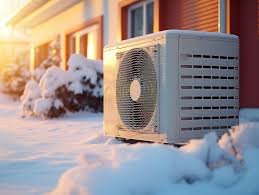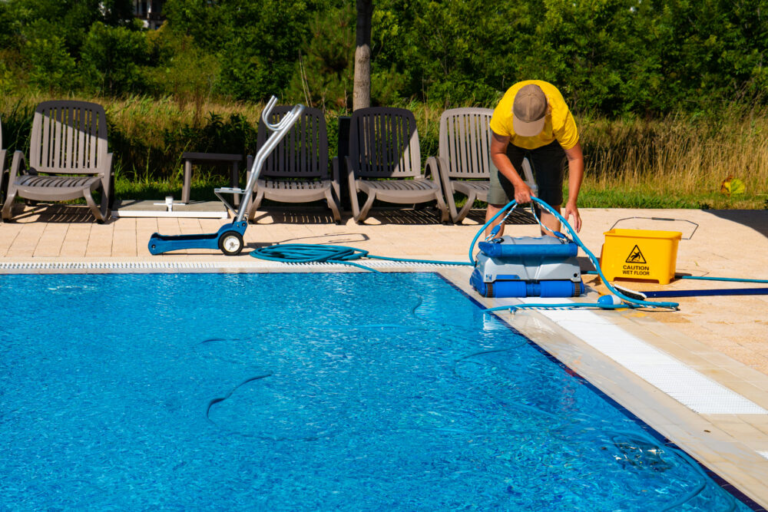How to Prepare Your HVAC System for Winter and Summer Seasons?

An efficient HVAC system ensures year-round comfort by maintaining the perfect indoor climate, no matter how extreme the weather outside becomes. As seasons change, so do the demands placed on your heating and cooling systems, making regular preparation essential. Without proper maintenance, performance can drop, energy costs can rise, and unexpected breakdowns can occur. Preparing your HVAC system for both winter and summer is the key to maximizing its efficiency and longevity. A few strategic steps before each season begins can help you maintain consistent comfort, reduce utility expenses, and prevent costly mid-season repairs.
Seasonal Readiness for Changing Temperatures
Each season introduces unique challenges that affect how your HVAC system operates. During winter, the system must deliver consistent heating while battling dry air and fluctuating outdoor temperatures. In summer, it works harder to cool and dehumidify your home efficiently. Transitioning between these demands requires careful inspection, cleaning, and adjustment to ensure every component performs at its peak. Homeowners should schedule routine maintenance before the start of each major season, as this timing allows technicians to identify and resolve issues early. Preparing in advance prevents sudden system failures and ensures that your equipment can handle temperature extremes without losing efficiency. These small, proactive steps not only enhance comfort but also extend the unit’s overall lifespan, giving you peace of mind as each season approaches.
Inspecting and Cleaning Essential Components
Proper maintenance begins with thorough inspection and cleaning of key HVAC components such as filters, coils, and vents. Dirty filters can restrict airflow, forcing the system to work harder and consume more energy. Regularly cleaning or replacing filters improves both efficiency and indoor air quality. Similarly, condenser coils and evaporator coils must be kept free of dust and debris to ensure proper heat exchange. Clearing outdoor units of leaves, dirt, and grass clippings prevents airflow obstruction and helps maintain consistent cooling performance. Homeowners seeking detailed seasonal maintenance advice can click here for professional guidance and helpful preparation tips. These cleaning efforts, combined with checking ductwork for leaks and sealing gaps, help your system operate smoothly during both heating and cooling seasons. Regular attention to these components eliminates strain on the system and reduces wear over time, preventing expensive repairs.
Optimizing Thermostat Performance for Efficiency
An efficient thermostat setup plays a major role in maintaining seasonal comfort. Before winter, homeowners should recalibrate their thermostat settings to ensure heating cycles run correctly, while in summer, adjustments should favor gradual cooling rather than continuous operation. Smart thermostats make this process easier by learning usage patterns and adjusting temperatures automatically based on occupancy. These devices not only save energy but also provide remote access, allowing you to monitor and control indoor conditions even while away. Replacing old thermostats with programmable or smart models can lead to noticeable energy savings year-round. A well-programmed thermostat prevents your HVAC system from working unnecessarily hard, ensuring balanced temperature control throughout your home. Proper thermostat use is one of the simplest and most effective steps in preparing your system for seasonal demands, combining comfort and efficiency with minimal effort.
Checking Insulation and Airflow Balance
Insulation and airflow play an integral part in the overall performance of your HVAC system. When insulation in walls, attics, and ducts is insufficient, temperature loss occurs, forcing the system to run longer to achieve desired comfort levels. Sealing gaps and improving insulation not only keeps indoor temperatures stable but also reduces strain on heating and cooling equipment. Equally important is ensuring balanced airflow through vents and registers. Blocked or closed vents can cause pressure imbalances, leading to uneven temperatures and reduced energy efficiency. Regularly checking airflow and insulation helps maintain consistent comfort while minimizing wasted energy. These improvements are particularly important before winter, when heating demands increase, and during summer, when cool air must circulate freely throughout the home. Optimized airflow and insulation ensure your HVAC system operates at peak performance year-round.
Preparing for Winter Heating Demands
Winter preparation focuses on ensuring the heating system operates safely and efficiently under continuous use. Inspecting the furnace or heat pump, cleaning burners, and testing ignition components are essential steps to prevent malfunctions during cold spells. It’s also important to check for carbon monoxide leaks or blockages in the vent system, as safety is paramount during heating season. Replacing filters more frequently in winter helps maintain steady airflow and prevents overheating. Additionally, homeowners should ensure that radiators, vents, and ducts are free of obstructions that could restrict warm-air circulation. Maintaining humidity balance with humidifiers can improve air quality and comfort during dry winter months. These steps collectively ensure that when temperatures drop, your home remains warm, safe, and energy-efficient without unexpected system stress or breakdowns.
Preparing for Summer Cooling Efficiency
When preparing for the summer months, the focus shifts to keeping the cooling system running at maximum efficiency. This involves inspecting refrigerant levels, cleaning condenser coils, and verifying that the blower motor and fan are functioning properly. Low refrigerant levels can cause the system to lose cooling capacity and overheat, while dirty coils reduce the system’s ability to expel heat effectively. Regular tune-ups before peak summer help prevent system overload and unexpected breakdowns during high-demand periods. Homeowners should also test their air conditioning early in the season to ensure it’s cooling evenly and responding to thermostat settings accurately. Maintaining shade around outdoor units or installing protective covers can also improve performance and reduce energy consumption. A well-prepared cooling system delivers consistent comfort even during Portland’s warmest days, keeping indoor air fresh and temperatures steady.
Scheduling Regular Professional Maintenance
While homeowners can perform many basic maintenance tasks, professional servicing ensures that every technical detail is addressed thoroughly. Trained technicians conduct detailed inspections, test safety controls, and measure efficiency levels that may not be visible to the untrained eye. They also provide performance reports that help identify developing issues before they lead to costly failures. Annual tune-ups—ideally one before winter and another before summer—help maintain manufacturer warranties and preserve system reliability. Professional maintenance gives homeowners peace of mind, knowing their HVAC systems are optimized for both seasonal extremes. These routine checkups also serve as an investment in energy savings, reducing long-term operating costs while ensuring consistent performance year after year. Preventive care keeps the system strong, efficient, and dependable through every temperature shift the year brings.
Preparing your HVAC system for winter and summer is more than a maintenance task—it’s a long-term commitment to comfort, safety, and efficiency. By carefully inspecting, cleaning, managing thermostats, and having their systems professionally serviced, homeowners can ensure their systems perform optimally year-round. These preparations not only prevent costly repairs but also enhance indoor air quality and reduce energy consumption. Every season brings new demands, but a well-maintained system adapts smoothly to them, keeping your home comfortable no matter the weather. With consistent care, your HVAC investment continues to deliver dependable performance, saving time, money, and energy while ensuring lasting comfort for years to come.





